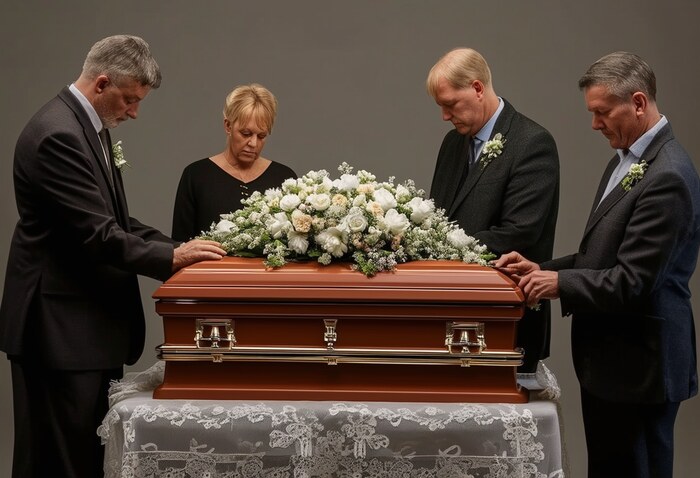
TL;DR:
A wrongful death in Georgia occurs when a person dies due to another party’s negligence, recklessness, criminal act, or defective product. The deceased’s family can pursue compensation under O.C.G.A. § 51-4-1 for the full value of life lost.
Key Highlights:
- Defined under O.C.G.A. § 51-4-1, wrongful death includes fatalities caused by negligence, medical malpractice, or intentional harm.
- Common causes include car accidents, medical errors, workplace incidents, and criminal actions.
- Survivors can seek compensation for economic and non-economic losses, including lost income, pain and suffering, and funeral expenses.
Not every tragic death leads to a wrongful death lawsuit, but when someone’s negligence or misconduct causes a fatality, Georgia law allows certain family members to seek justice. Whether it’s a deadly car accident, medical malpractice, a workplace incident, or a defective product, proving wrongful death requires meeting specific legal criteria.
According to the National Safety Council (NSC), unintentional injuries resulted in more than 224,000 deaths nationwide in 2021, making them a leading cause of fatalities. In Georgia, motor vehicle accidents alone accounted for over 1,800 deaths in 2022, many of which were preventable.
Georgia law (O.C.G.A. § 51-4-1) defines wrongful death and outlines the circumstances under which a lawsuit can be filed. Understanding what qualifies as a wrongful death is the first step in determining whether legal action is possible.
What is Considered a Wrongful Death in Georgia?
Under Georgia law (O.C.G.A. § 51-4-1), a wrongful death occurs when a person dies due to the negligent, reckless, intentional, or criminal actions of another party. This could include fatal car accidents, medical malpractice, or workplace incidents where safety regulations were ignored.
To qualify as wrongful death, the case must meet three key elements:
- Duty of Care – The defendant had a legal obligation to act reasonably to prevent harm (Wells v. Riggs, 306 Ga. 371 (2019), reaffirming duty of care in negligence claims).
- Breach of Duty – The defendant failed to uphold this duty through negligence, misconduct, or a wrongful act (Johnson v. Omondi, 294 Ga. 74 (2013), discussing standards of negligence in wrongful death claims).
- Causation – The breach of duty directly caused the person’s death (Kelley v. Purcell, 301 Ga. 319 (2017), requiring clear evidence that negligence caused the fatal injury).
If these elements are proven, the family may have the right to file a wrongful death lawsuit. If you’ve lost a loved one due to wrongful actions of any party, contact an Atlanta wrongful death lawyer for free case evaluation. Our wrongful death attorneys work on contingency basis so we do not charge you until we win.
Common Causes of Wrongful Death in Georgia
1. Motor Vehicle Accidents
Georgia follows a fault-based system for car accidents, meaning the at-fault driver (or their insurer) is responsible for damages (O.C.G.A. § 51-1-6). If a driver’s negligence—such as DUI (O.C.G.A. § 40-6-391) or distracted driving (O.C.G.A. § 40-6-241)—leads to a fatal accident, it can form the basis for a wrongful death claim.
2. Medical Malpractice
Georgia law holds doctors and hospitals accountable for fatal medical errors under O.C.G.A. § 51-1-27, which states that healthcare providers owe a duty of care to their patients. If a doctor misdiagnoses a condition, performs a surgical error, or prescribes the wrong medication, the deceased’s family may sue for wrongful death (Knight v. Roberts, 316 Ga. 432 (2023), discussing liability in medical negligence cases).
3. Workplace Accidents
Georgia’s Workers’ Compensation Act (O.C.G.A. § 34-9-265) provides death benefits for workplace fatalities. However, if the employer’s gross negligence or a third party’s actions caused the death, the family may have grounds for a wrongful death lawsuit beyond workers’ comp (Wilkie v. W. Contracting Corp., 274 Ga. 732 (2002), ruling that extreme employer negligence can justify additional claims).
4. Defective
Manufacturers can be held liable under Georgia’s Product Liability Laws (O.C.G.A. § 51-1-11) if a faulty product leads to death. This includes defective auto parts, unsafe drugs, or dangerous household appliances (Banks v. ICI Americas, 264 Ga. 732 (1994), establishing product liability standards in Georgia).
5. Nursing Home Negligence and Abuse
Nursing homes must meet the care standards set by federal and Georgia laws (O.C.G.A. § 31-8-100). If neglect or abuse leads to death, the facility can face wrongful death claims (Beverly Enterprises v. Reeves, 270 Ga. App. 729 (2004), holding nursing homes accountable for fatal neglect).
6. Criminal Acts (Homicide & Assault)
If someone is murdered or assaulted, the offender can face both criminal charges and civil liability for wrongful death. The preponderance of the evidence standard in civil cases makes it easier to prove liability than in criminal cases (O.C.G.A. § 51-4-5 and Hicks v. Sheriff, 292 Ga. App. 127 (2008)).
Who Can File a Wrongful Death Claim in Georgia?
Under O.C.G.A. § 51-4-2, the following individuals can file:
- Spouse – If the deceased was married, the surviving spouse has the first right to file a claim. If there are minor children, the spouse must act on their behalf as well.
- Children – If there is no surviving spouse, the deceased’s children can file the lawsuit.
- Parents – If the deceased had no spouse or children, the parents of the deceased may file a wrongful death claim.
- Estate Representative – If none of the above family members exist, the personal representative of the deceased’s estate can file (O.C.G.A. § 51-4-5).
Statute of Limitations: How Long Do You Have to File?
In Georgia, wrongful death claims must be filed within two years from the date of death (O.C.G.A. § 9-3-33). However, exceptions may apply:
- If the death resulted from a crime, the statute of limitations pauses until the criminal case is resolved (O.C.G.A. § 9-3-99).
- If the case involves a government entity, special notice requirements apply (O.C.G.A. § 36-33-5 for claims against cities).
What Compensation is Available in a Georgia Wrongful Death Case?
Under O.C.G.A. § 51-4-2, damages may include:
1. Full Value of the Life of the Deceased
- Lost wages and benefits (Western & A.R.R. Co. v. Michael, 175 Ga. 1 (1932)).
- Loss of companionship, care, and guidance.
2. Funeral and Medical Expenses
- Medical bills related to the final injury or illness.
- Funeral and burial expenses (O.C.G.A. § 51-4-5(b)).
3. Punitive Damages (in Certain Cases)
Punitive damages may apply if the death resulted from reckless or intentional misconduct (O.C.G.A. § 51-12-5.1, allowing punitive damages for egregious conduct).
How Our Wrongful Death Lawyer Can Help You
Losing a loved one is devastating, and legal complexities can add to the stress. An experienced Atlanta wrongful death accident lawyer can help by:
- Investigating the case to determine liability.
- Gathering evidence, including police reports, medical records, and expert testimonies.
- Negotiating with insurance companies to secure fair compensation.
- Filing a lawsuit if a settlement isn’t reached.
If you need legal guidance, contact us for a free evaluation to discuss your case with an attorney.
Conclusion
If another party’s negligence, recklessness, or intentional actions caused the death, surviving family members may have the right to pursue a wrongful death claim. Since Georgia law has specific rules on eligibility, time limits, and damages, consulting an experienced lawyer can help you maximize your compensation.If you believe you have a case, contact us for a free evaluation today to discuss your options.






